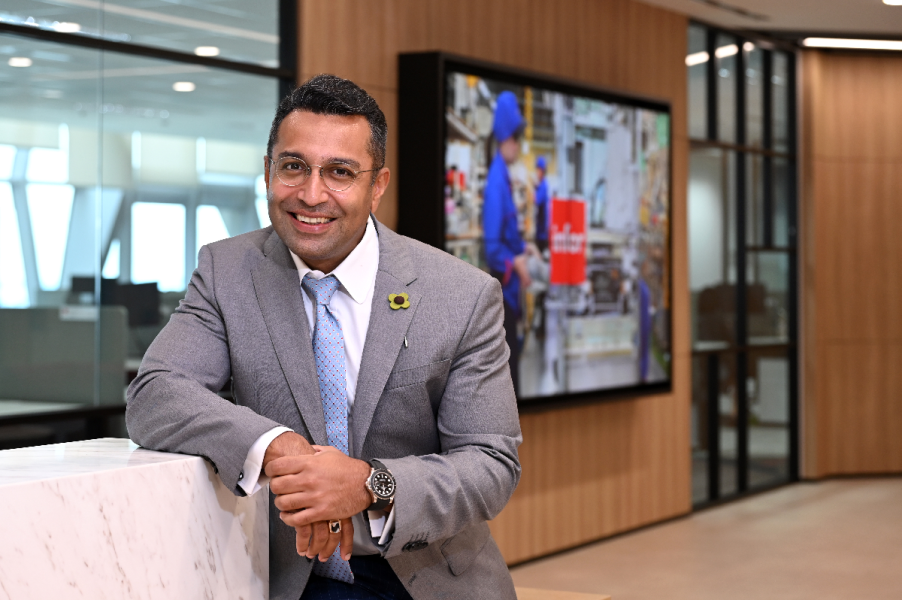By Terry Smagh, Senior Vice President and General Manager for Asia Pacific and Japan, Infor
In the face of high inflation and increased prices, innovative food and beverage companies have turned to artificial intelligence (AI) and more specifically machine learning (ML) to drive efficiency and cut costs. Increased investment in applied AI and implementation of ML solutions helps food & beverage organizations to reduce waste, improve business processes and meet increased demand in a complex and unstable supply chain. Most importantly, food & beverage companies in the cloud have an advantage to more quickly kickstart the use of ML due to having the data, analytics and ML readily available as a service. As food & beverage companies continue to delve into applied AI, the ability to host and visualize data in the cloud will be critical to identify opportunities to optimize operations, cut costs and reduce waste.
One way that AI helps food and beverage companies is by improving the accuracy and speed of product recommendations and pricing strategies in sales. With the currently volatile raw material and energy prices, food & beverage companies must dynamically determine the right product offerings and price point to sustain sales volumes. Global bakery ingredients business Zeelandia Group has addressed the challenges of higher costs and lack of available bakery ingredients by deploying a ML model that recommends products and prices to be offered to the bakeries based on what similar customers are buying. Through the implementation of applied AI, Zeelandia Group achieved an 83% faster time to prepare product recommendations for customers, cutting the time down from 30 minutes to 5 minutes. As a result of product recommendations taking less time, Zeelandia Group employees were able to provide a better customer experience in addition to increased revenue per transaction and share of wallet per customer.
Another area where food and beverage companies have applied AI and ML is sustainability. Food and beverage organizations have turned toward ML to help reduce waste and identify inefficiencies within the supply chain. For example, leading global provider of goat and organic cow cheese, Amalthea, has turned to applied AI to make the cheese quality more predictable and to maximize yield, build customer loyalty and boost sustainability. Previously, Amalthea could only manually analyze milk yield on a weekly basis, which made it difficult to adjust process parameters steering the process to optimize the yield. By leaning on ML, Amalthea can now view the yields immediately in addition to receiving direct insight into what is causing a yield change. This helps Amalthea to reduce its overall waste from manufacturing, as the company can quickly identify pain points and improve processes simultaneously. These changes have had a direct impact on the company’s profitability and bottom line, as for every 1 percent increase in yields, Amalthea expects to save approximately 500,000 euros.
Furthermore, the global labor shortage has persisted and has interrupted the output of the food & beverage industry. This global labor shortage can also be attributed to the new generation of workers, who are looking for life-long employment opportunities and value-driven careers rather than working in a factory or in customer service. Given the increased pressure to maintain supply with heightened demand, food & beverage businesses are investing in manufacturing automation and Industry 4.0 technologies to account for the lack of employees. For instance, businesses have utilized AI with robots to automate labor-intensive tasks that previously required human eyes and decisions, such as sorting, grading, cutting and slicing. Moreover, investing and implementing the latest Industry 4.0 technologies has been attracting young talent hungry individuals to use the latest innovation to improve global food & beverage challenges, such as sustainable fishing. Leading animal nutrition company Nutreco relies on the latest Industry 4.0 technologies for precision farming of shrimps. Nutreco has achieved additional production cycles of healthier shrimps, while at the same time using 30% less feed. Specifically, Nutreco uses audio sensors in aquaculture to listen to the shrimps, understanding when they are hungry. AI determines when and how much the shrimps must be fed to overall help reduce feed waste while prioritizing shrimp growth.
With the unprecedented becoming the norm in the food & beverage industry, applied AI will be imperative for businesses to work smarter, not harder. It’s clear that with ML solutions, organizations can save on costs, sustainability can be improved, and workers can focus on delivering on customer experience rather than on mundane tasks. Food and beverage organizations do not have a choice to adapt in the face of economic uncertainty. Applied AI is imperative to ensure business profitability midst economic downturn and skyrocketing inflation.
Source: FAQ

